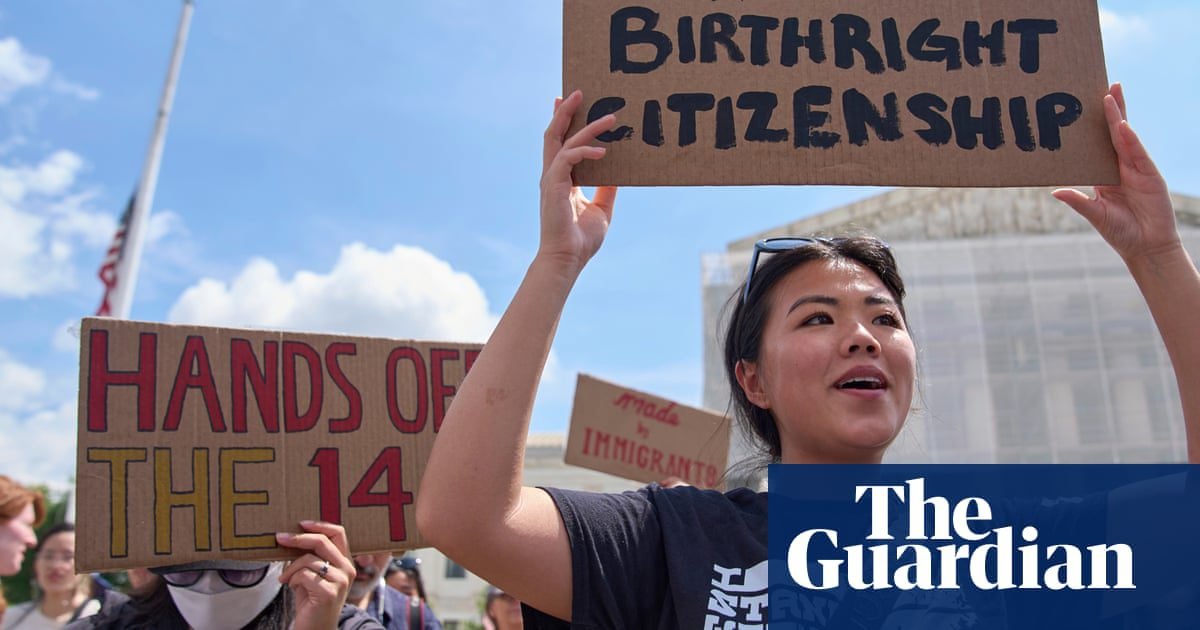The US supreme court has supported Donald Trump’s attempt to limit district judges’ power to block his orders on a nationwide basis, in an emergency appeal related to the birthright citizenship case but with wide implications for the executive branch’s power. The court’s opinion on the constitutionality of whether some American-born children can be deprived of citizenship remains undecided and the fate of the US president’s order to overturn birthright citizenship rights was left unclear.
The decision on Friday morning, however, decided six votes to three by the nine-member supreme court bench, sides with the Trump administration in a historic case that boosts tested presidential power and judicial oversight in the second Trump administration.
The court’s ruling in Trump v CASA, Inc will boost Trump’s potential to enforce citizenship restrictions, in this and other cases in future, in states where courts had not specifically blocked them, creating a chaotic patchwork.
Trump’s January executive order sought to deny birthright citizenship to babies born on US soil if their parents lack legal immigration status – defying the 14th amendment’s guarantee that “all persons born or naturalized in the United States” are citizens – and made justices wary during the hearing.
The real fight in Trump v CASA Inc, wasn’t about immigration but judicial power. Trump’s lawyers demanded that nationwide injunctions blocking presidential orders be scrapped, arguing judges should only protect specific plaintiffs who sue – not the entire country.
Three judges blocked Trump’s order nationwide after he signed it on inauguration day, which would enforce citizenship restrictions in states where courts hadn’t specifically blocked them. The policy targeted children of both undocumented immigrants and legal visa holders, demanding that at least one parent be a lawful permanent resident or US citizen.
The 14th amendment to the US constitution’s citizenship clause overturned the 1857 Dred Scott ruling that denied citizenship to Black Americans. The principle has stood since 1898, when the supreme court granted citizenship to Wong Kim Ark, born in San Francisco to Chinese immigrant parents who could not naturalize.


